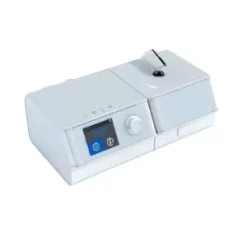Central Sleep Apnea Treatment
Central sleep apnea (CSA) is a sleep disorder that disrupts breathing during sleep due to the brain failing to send the correct signals to the muscles responsible for breathing. Unlike obstructive sleep apnea, CSA isn’t caused by airway blockages but by central nervous system issues. Addressing CSA is crucial for better sleep quality, reducing health risks, and improving overall well-being.
Common Symptoms of Sleep Apnea
- Irregular breathing during sleep
- Frequent awakenings or insomnia
- Daytime fatigue or excessive sleepiness
- Morning headaches
- Difficulty concentrating or mood changes
If you experience these symptoms, seeking medical advice is essential for diagnosis and treatment.
Causes of Central Sleep Apnea
Central sleep apnea can stem from several factors, including:
- Underlying Medical Conditions: Heart failure, stroke, or neurological disorders can lead to CSA.
- High Altitude: Sleeping at high altitudes can disrupt normal breathing.
- Opioid Use: Certain medications impact respiratory function.
- Idiopathic CSA: In some cases, the cause remains unknown.
Effective Treatment for Sleep Apnea
Treating CSA requires a tailored approach based on its underlying cause. Here are some effective options:
- Continuous Positive Airway Pressure (CPAP)
A CPAP machine provides a steady stream of air through a mask to keep airways open. While commonly used for obstructive sleep apnea, it may benefit some CSA cases. - Adaptive Servo-Ventilation (ASV)
This advanced device adjusts to your breathing patterns, offering support when irregularities occur. It’s particularly effective for complex cases. - Oxygen Therapy
Supplemental oxygen can help stabilize breathing and maintain oxygen levels during sleep. - Medications
Medications like acetazolamide may be prescribed to stimulate breathing. - Addressing Underlying Conditions
Treating contributing factors, such as heart failure or neurological issues, can often resolve CSA. - Lifestyle Changes
Maintaining a healthy weight, avoiding alcohol or sedatives before bed, and following a consistent sleep schedule can improve symptoms of central sleep apnea.
Why Timely Treatment Matters
Untreated central sleep apnea can lead to complications like heart arrhythmias, worsening heart failure, or an increased risk of stroke. Early diagnosis and a personalized treatment plan can enhance your quality of life and overall health.
When to Seek Medical Advice
If you notice irregular breathing during sleep or experience symptoms like fatigue, consult a sleep specialist. A thorough evaluation, including a sleep study, can identify the best treatment path.
Central sleep apnea can feel overwhelming, but effective solutions are available. Take the first step toward better health and restful sleep by addressing this condition today.






